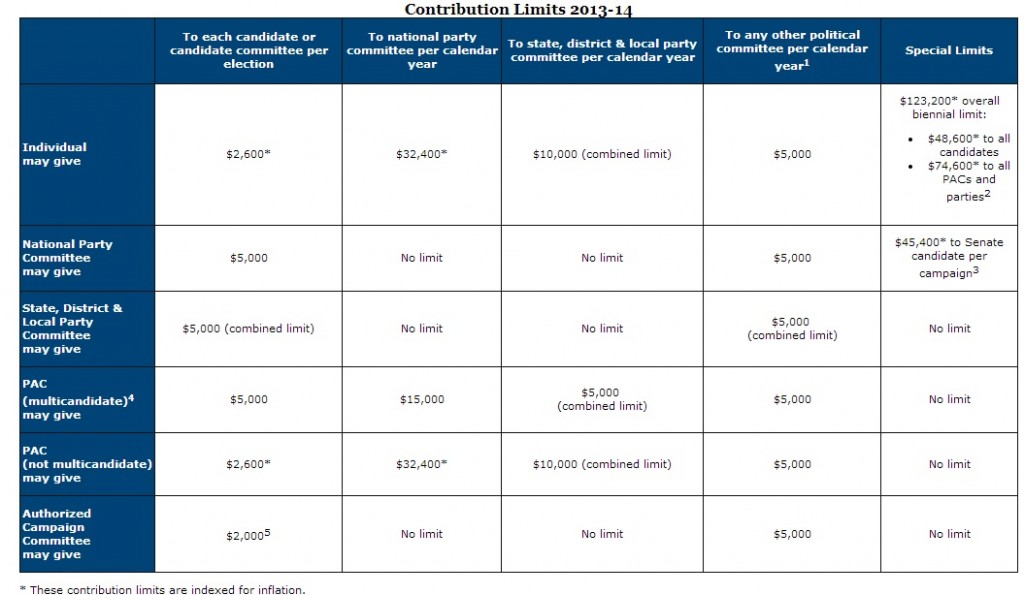Recently, I’ve been writing about issues that immediately affect American citizens; social rights, the economy, and healthcare. There is one issue, though, that has come about recently that is not immediately associated with everyday issues.
This Tuesday, the Supreme Court ruled in the case of McCutcheon v. FEC. Shaun McCutcheon, an Alabama businessman, gave thousands of dollars in last year’s elections to Republican candidates, but was unhappy that federal law prevented him from giving more. The law capped the number of candidates and committees a single person could donate to in an election cycle, and McCutcheon hit that limit. He had donated the maximum $123,200 that an individual could give. He argued that this limit was in violation of the First Amendment’s protection of freedom of speech. The Federal Election Commission (FEC) argued that the cap was necessary to combat political corruption, but the Republican National Committee joined McCutcheon and brought the case to court. After making it all the way to the Supreme Court, the case was decided by a 5-4 vote in favor of McCutcheon, and the individual donation limit was lifted.
The ruling did not completely unlimit donations, though. Prior to the ruling, an individual could only give $48,600 total to all candidates in an election cycle, and the rest had to go to committees. Now, an individual can give up to $48,600 to as many candidates as he or she wants and up to $74,600 to as many committees as he or she wants. Previously, a donor could only give $2,600 to a specific candidate running for federal office; now, that donor can give nearly 20 times that amount. Although the true effects of the ruling have not yet been seen, it is highly likely that even more campaign money will be thrown around in the coming cycle.
Campaign financing has skyrocketed in recent years. A major factor for this is the result two other Supreme Court cases, the first being Citizens United v. FEC. Decided in 2010, the Court ruled that corporations, associations, and labor unions could make unlimited donations to a campaign. Another 2010 ruling, SpeechNOW.org v. FEC, paved the way for super-PACs. Basically, these special Political Action Committees could make unlimited donations as long as they disclosed donor information and they did not associate in any way with a candidate. Super-PACs work by having individuals donate to the PAC and then the PAC donating to candidates. Essentially, it allowed individuals to dodge the cap on campaign donations; in the 2012 presidential race alone, some individuals donated tens of millions of dollars to a candidate by funneling that money through a Super-PAC. As a result of these rulings, campaign spending skyrocketed, and the cost of winning an election increased exponentially.

Recent campaign financing data. After the Citizens United and SpeechNOW rulings, spending by PACs, groups, and individuals increased dramatically.
If you’re not a politician, you may think that all of this campaign financing doesn’t affect you. In reality, it has much more of an effect than you might think. Critics of the system argue that the high cost of running for office distracts lawmakers from their primary goal of actually making laws; this is hard to prove, though, and it is certainly debatable. Arguments that have more of a hold, however, revolve around ethics. Quite often, a politician’s financial backing comes from an organization with its own political interests. When a candidate receives from an organization, there is an implied need to support that organization’s desires. Ultimately, a politician’s job relies on his/her ability to be reelected, and pleasing donors is a way to help ensure continued campaign success. Critics of current campaign financing say this is essentially giving an unfair voice to super-PACs, because their money has a much greater influence in the outcome of an election than a vote does. Furthermore, super-PACs give a disproportional influence to individuals who donate to them. The money an individual donates to a super-PAC is used to essentially “buy” the votes of others. In this way, individuals who can afford to donate to super-PACs have a greater civic influence than those who cannot.
In recent years, restrictions on campaign finance have been loosened substantially. Hundreds of millions of dollars go toward funding political campaigns every year, and it is hard to say this money does not buy political influence. Ultimately, unlimited campaign contributions, whether from individuals or super-PACs, disrupt the “one voice, one vote” mentality of a democracy. It effectively gives greater weight to the votes of those who can afford political influence compared to those who can’t. It will be interesting to see how the McCutcheon v. FEC ruling affects the 2014 elections, but in my mind one thing is certain: votes should be decided on policy, not by money, and I can’t imagine the new system of campaign financing will in any way make votes be decided on policy.
Sources:
The Power of Money: The Ethics of Campaign Finance Reform
What Is a Super PAC? A Short History
Everything You need to Know about McCutcheon v. FEC
Supreme Court Strikes Down Overall Campaign Contribution Limits





One response to “Campaign Finance”